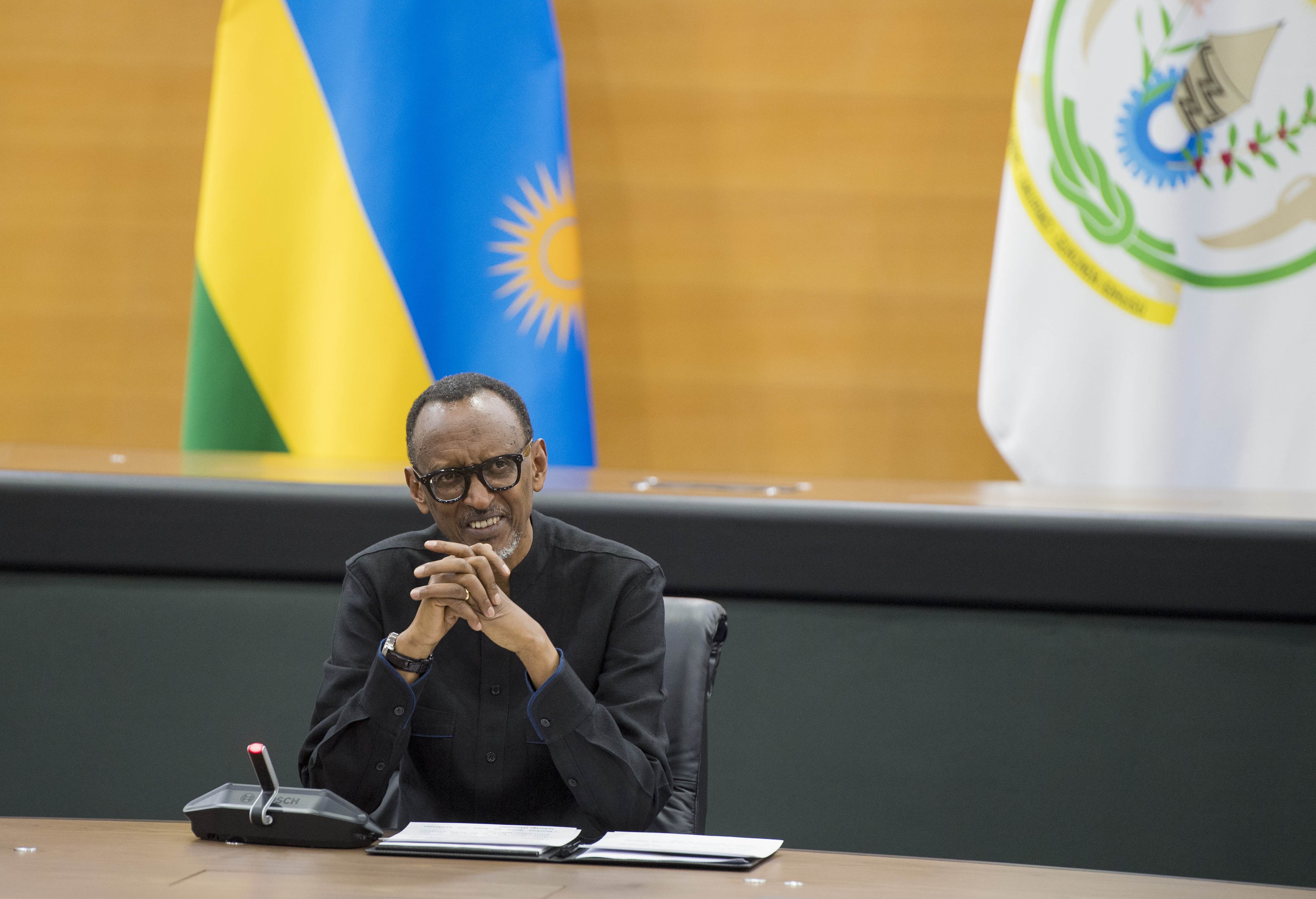By Edmund Kagire, 25 April 2023

President Paul Kagame of Rwanda (photo credit: Paul Kagame / flickr)
The Minister of Justice and Attorney General, Dr. Emmanuel Ugirashebuja, on [24 April] presented proposed changes in the Constitution to Members of the Conference of Chairpersons of the Chamber of Deputies for consideration before they are taken to both houses for approval, as Rwanda looks to clean up and fine tune the supreme law which was promulgated in 2003 and amended in 2015.
[...] Dr. Ugirashebuja, who was flanked by the Minister of State in Charge of Constitution and Legal Affairs, Solina Nyirahabimana, and Domitilla Mukantaganzwa, chairperson of the Rwanda Law Reform Commission, explained that the proposed changes [which will impact at least 130 articles of the Constitution] were initiated by the President of the Republic, who used his prerogative to write to Parliament asking the house to make necessary changes in the law and update others.
Dr. Ugirashebuja said that while the synchronisation of presidential and parliamentary elections is the main trigger for the proposed draft changes, it was also seen as an opportunity to review some of the articles in the constitution that bring about redundancy and bureaucracy.
[...] Among other key proposed changes, public pronouncement of court decisions will be scrapped if the proposed change is adopted. After the trial, judges and magistrates will be uploading the judgement in the system known as Integrated Electronic Case Management System (IECMS) where all parties involved can access it. [...] Among the proposed changes, the Prime Minister will no longer have to appear frequently before Parliament to brief legislators about government activities, with the appearances reduced to at least three times a year instead of once in three parliamentary sessions. [...] Also in the changes, Presidential appointees will no longer have to go through vetting and approval by cabinet and other institutions if the proposal is approved, as this was found to cause delays in people taking up their responsibilities. [...] Other articles proposed for amendment include Article 136 relating to the state of emergency and state of siege, article 137 on the declaration of a state of emergency and state of siege, and Article 138 on Parliament during a state of siege or state of emergency to change the wording and translation which was misleading.
Read the full article here:
KT Press
